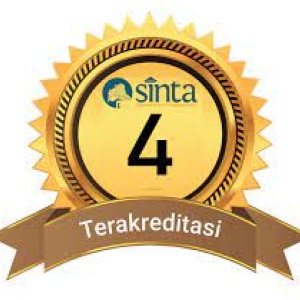Testimoni Penggunaan Hukum Islam dalam Naskah Serat Ambiyo Pelemgadung Sragen (1907M)
DOI:
https://doi.org/10.37014/jumantara.v13i2.1482Keywords:
History of Islamic Law, Pelemgadung Text, TestimonyAbstract
Islamic law has been attached to the customs of the Javanese people and has a function as the norm of community life. This Islamic law runs in harmony without having to negate the existing culture. The arrival of the Dutch colonials to the archipelago resulted in changes in the political and social system. The laws and regulations were domesticated by the Dutch colonials and only applied to indigenous peoples. These rules do not necessarily make people leave the law based on Islamic teachings. In this manuscript of Serat Ambiyo Pelemgadung there is an agreement regarding the chapter on leasing based on Islamic law. This chapter is one of the important evidences that Islamic law is still used in society, in addition to the rules made by the Dutch. For more detail in analyzing the chapter, the researcher uses the Testimony analysis from Shoshana Felman. Felman's study is indeed suitable in this study, especially Islamic law at that time was experiencing repression from the colonial government. The notes in this manuscript are important to be studied as evidence of testimony that Islamic law is still used in Javanese society.References
Algadri, Hamid. Islam dan Keturunan Arab dalam Pemberontakan Melawan Belanda. Bandung: Mizan. 1996.
Al-Maqdisi, Abu Muhammad 'Abd Allah Ibn Ahmad Ibn Muhammad Ibn Qudamah. al-Mughni Syarh al-Kabir, Juz. 7. Beirut: Daar al-Kutub al-‘Ilmiyah.
Bajeber, Zaen. Mimbar Hukum. No. 36, 1998.
Budiono, Abdul Rachmad. Peradilan Agama dan Hukum Islam di Indonesia. Jakarta: Bayumedia Publishing. 2003.
Chairuman Pasaribu, Suhrawardi K Lubis. Hukum Perjanjian dalam Islam. Jakarta : Sinar Grafika. 1996. Cet. II.
Gunaryo, Ahmad. Pergumulan Politik dan Hukum Islam. Yogyakarta: Pustaka Pelajar. 2006.
H.M.Anshary. Hukum Perkawinan di Indonesia, Yogyakarta: Pustaka Pelajar. 2010. Cet. I.
Hasan, M. Ali. Berbagai Macam Transaksi Dalam Islam, Jakarta: PT. Raja Grafindo Persada. 2004. Cet. II.
Iqbal, Muhammad. "Politik Hukum Hindia Belanda dan Pengaruhnya Terhadap Legislasi Hukum Islam di Indonesia." Ahkam 7, No.2 (2012-Juli).
Istanti, Kun Zachrun. Metode Penelitian Filologi dan Penerapannya. Yogyakarta: Elmatera. 2013.
Istanti, Shoshana. Testimony: Crises of witnessing in Literature, Psychoanalysis, and History. New York and London: Routledge. 1992.
Nida, Eugene. & Taber. The Theory and Practice of Translation. Leiden: E.J.Brill. 1969.
Noer, Delia. Gerakan Modern Islam di Indonesia 1900-1942. Jakarta: LP3ES. 1982.
Ridwan, Achmad. "Perkembangan Pengadilan Pradata Masa Reorganisasi Bidang Hukum di Kasunan Surakarta Tahun 1893-1903." Surakarta: Skripsi, Fakultas Sastra dan Seni Rupa Universitas Sebelas Maret. 2010.
Saputra, Karsono, H. Pengantar Filologi. Jakarta: Wedatama Widya Sastra. 2008.
Sudardi, Bani. Penggarapan Naskah. Surakarta: BPSI. 2003.
Sudiyat, Iman. Asas-asas Hukum Adat. Yogyakarta: Liberti. 1991.
Suhendi, Hendi. Fiqih Muamalah. Jakarta: PT. Raja Grafindo Persada. 2005. Cet I.
Suminto, Aqib. Politik Islam Hindia Belanda. Jakarta: LP3ES. 1985.
Supriadi, Dedi. Aplikasi Metodologi Penelitian Filologi Terhadap Pustaka Pesantren. Bandung: Pustaka Rahmat. 2011.
Syarifuddin, Amir. Garis-Garis Besar Fikih. Jakarta: Prenada Media. 2003. Cet. II.
Yunus, Mahmud. Hukum Perkawinan Dalam Islam, Cetakan Ketujuh. Jakarta: Hidayakarya. 1977. Cet. 7.
Downloads
Additional Files
Published
Issue
Section
License
Copyright (c) 2022 Jumantara: Jurnal Manuskrip Nusantara

This work is licensed under a Creative Commons Attribution-ShareAlike 4.0 International License.
- This statement is the author's commitment to respect copyright, both in terms of citing other people's work and utilizing journal content. If necessary, the author can send an Authenticity Statement of Article stating that "this work is the author's original idea and has never been sent to another publisher and published in any publication"
- The author retains copyright.
- The moral rights of publication belong to the author.
- Formal legal aspects in the use of journal publications refer to the Creative Commons Attribution-ShareAlike 4.0 (CC BY-SA) license, which means that journal content can be used freely for any purpose.










